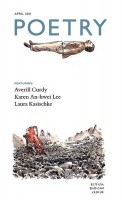Random Ass Live Reading of Some Recent Books I Liked #7
You missed the live reading but you can still check out the books I read from if you are on the internet. Here they are, I recommend them all highly:
Lightning Rods by Helen DeWitt [New Directions]
selected unpublished blog posts of a mexican panda express employee by Megan Boyle [Muumuu House]
Beauty Was The Case That They Gave Me by Mark Leidner [Factory Hollow]
0.174 by Gordon Massman [New York Quarterly Press]
Simple Machines by Michael Bible [Awesome Machine]
The Trees The Trees by Heather Christle [Octopus Books]
The Flame Alphabet by Ben Marcus [Knopf]
The Hermit by Laura Solomon [Ugly Duckling]
Coeur de Lion by Ariana Reines [reissue, Fence]
How The Days of Love and Diptheria by Robert Kloss [Nephew]
An Interview with Andy Frazee
 A literary university press offer exposure for the students; the gap between writer and publisher blurs, has been blurring, as more and more one partakes in the work of the other. Why should an MFA only prepare a person for a profession in teaching? People enroll in ever-growing programs in order to write anyway (right?), not necessarily to teach. Writers, however, thrive with publishers. As mentioned later (in the interview), Ted Berrigan could staple together as many copies of his Sonnets as he likes, but everyone I know owns the copy published by Penguin. Why should this job be left up to a person with a business degree? Expanding an MFA degree to encompass, or at least introduce students to the business of books would not be difficult. Those who write have stakes in that buisness whether or not they are involved, so why not be involved?
A literary university press offer exposure for the students; the gap between writer and publisher blurs, has been blurring, as more and more one partakes in the work of the other. Why should an MFA only prepare a person for a profession in teaching? People enroll in ever-growing programs in order to write anyway (right?), not necessarily to teach. Writers, however, thrive with publishers. As mentioned later (in the interview), Ted Berrigan could staple together as many copies of his Sonnets as he likes, but everyone I know owns the copy published by Penguin. Why should this job be left up to a person with a business degree? Expanding an MFA degree to encompass, or at least introduce students to the business of books would not be difficult. Those who write have stakes in that buisness whether or not they are involved, so why not be involved?
The opportunity to be so involved in a press was exciting. Being part of the working relationship from the inception of making a manuscript into a book was rewarding and something I’m happy to have done. Below is an interview with the 2010 winner for poetry (published in 2011), Andy Frazee, whose book is available on Amazon or SPD.
Other books in 2011 include Alta Ifland’s Death-in-a-Box and Sandra Doller’s Man Years.
More information on Subito can be found on the website.
Stephen Daniel Lewis: One thing that surprised me about The Body, The Rooms was form. Not only that the form steps away from more standard types used in poetry, but the layout morphs section to section; sometimes even within a section the reader will see an evolution of the employed form. It was exciting to see how the usage of space encompasses the content in a way that seems inextricable.
I’m wonder what process led to this? Did the content come first, did it happen the other way around, or was it simultaneous? Also did you have specific reasons in mind for including elements that rarely surface in poetry (such as the explication that undercurrents the poems in the “Cartography” section, and the Dramatis Personae in the section titled “That the World Should Never Again Be Destroyed by Flood”)?
Andy Frazee: In general, content comes before form for me—not in terms of precedence, but in terms of chronology. For the most part, the content first comes in the form of journal entries and notes, which I at some point return to and cull for interesting phrases and ideas. A lot of the language in both “Cartography” and “In this Element of Capture,” for example, came from a series of sketches I’d written trying to re-write Eliot’s “Prufrock.” Both of those sequences have gone through many different formal manifestations, and I think this has a lot to do with my own attempts at trying to restrain an impulse to make the poem too organized, too logical. I often introduce some rudimentary form of chance operations to thwart that impulse—so at a certain point in the evolution of “Cartography” I listed out each individual sentence and dispersed them randomly in four-line sections over several pages. In the end, I go with what my gut tells me works, and that ultimately seemed to.
One example of the future tense is “Future Tense Books will do amazing things for the next 20 years too”
 20 years is a long time. Future Tense Books, run by Kevin Sampsell, has been putting books out for 20 years. These books are about things like talking to the moon and petting whale carcasses. They’re about finally figuring out what it means to belong to what you are, which is that it means you’re a freak. They’re about when your son loves Spiderman. They’re about pictures of ceiling fans in different emotional states. They’re also Gary Lutz, Zoe Trope, Elizabeth Ellen, Shane Allison, Chloe Caldwell, and 20 years worth of folks all the other peppermint cans were too freaked out to publish.
20 years is a long time. Future Tense Books, run by Kevin Sampsell, has been putting books out for 20 years. These books are about things like talking to the moon and petting whale carcasses. They’re about finally figuring out what it means to belong to what you are, which is that it means you’re a freak. They’re about when your son loves Spiderman. They’re about pictures of ceiling fans in different emotional states. They’re also Gary Lutz, Zoe Trope, Elizabeth Ellen, Shane Allison, Chloe Caldwell, and 20 years worth of folks all the other peppermint cans were too freaked out to publish.
 Along with putting out these books, Kevin Sampsell has also been, for 10 of those 20 years, single-handedly curating the most amazing small press cave at Powell’s in Portland, OR. Occupy Indie Lit is a leaderless casserole, except Kevin is probably the one who lent us the stove. He’s been around. He’s helped everybody. He’s sexy. He’s the shit. All of which is to say: do you want a cake maybe? Do you want someone to write a ukelele song for you maybe? Do you want incentive perks, I mean? Most importantly: do you want to support a press that’s been around 20 years and is now running its first ever official fundraiser to help push itself to the next level, literally shank anything depressing you can think of about “the state of publishing,” and take over the world? Well then go here. Help the Future of Future Tense.
Along with putting out these books, Kevin Sampsell has also been, for 10 of those 20 years, single-handedly curating the most amazing small press cave at Powell’s in Portland, OR. Occupy Indie Lit is a leaderless casserole, except Kevin is probably the one who lent us the stove. He’s been around. He’s helped everybody. He’s sexy. He’s the shit. All of which is to say: do you want a cake maybe? Do you want someone to write a ukelele song for you maybe? Do you want incentive perks, I mean? Most importantly: do you want to support a press that’s been around 20 years and is now running its first ever official fundraiser to help push itself to the next level, literally shank anything depressing you can think of about “the state of publishing,” and take over the world? Well then go here. Help the Future of Future Tense.
New Sink Review to read. Looks sweet — great writing, great design — it’s been a while since I’ve seen an online journal as right on as this one.
Unresolved Latency
A Little Bit More on Cliché
Here’s the plot: a woman sees this guy and falls in love. The trouble is, her father is feuding with the fellow’s father.
Sound familiar?
Laura Kasischke v. John McCrae
The rondeau is a fifteen-line poem appropriated from a French form dating to the 13th century. Here is John McCrae’s “In Flanders Fields,” the most famous rondeau in English:
In Flanders fields the poppies blow
Between the crosses, row on row,
That mark our place, and in the sky,
The larks, still bravely singing, fly,
Scarce heard amid the guns below.We are the dead; short days ago
We lived, felt dawn, saw sunset glow,
Loved and were loved, and now we lie
In Flanders fields.Take up our quarrel with the foe!
To you from failing hands we throw
The torch; be yours to hold it high!
If ye break faith with us who die
We shall not sleep, though poppies grow
In Flanders fields.
Note the straitjacket of the form — the AABBA AAB(refrain) AABBA(refrain) structure, and the refrain itself lifted from the first half of the first line.
Here is Laura Kasischke’s “Rondeau,” from the April 2011 issue of Poetry:
Small and panting mass
Of moonlight and dampness on a log
This glistening tumor, terrible frog
Of moonlight and dampness on a log
My small and panting mass READ MORE >

I existentialized via photoshop Adrian Tomine comic to commemorate preceding david fi卐hkind post; original after the break. “Seems bleak” or “fml” was supposed to be in thought bubble, but then I felt was it better with nothing.
I Honestly Feel Like They Purposefully Burned My Cappuccino

In Berlin, a city plagued by Bear figurines and expensive museums, and a lot of museums, I mean like, they have a museum on Currywurst, you find yourself (like most of the fucking people here, I mean do they even have full-time jobs in a social democratic parliamentary something something?) with a lot of free time. This free time can be spent sitting in your one-room apartment, provided by the university you attend in an egregiously uncool neighborhood, drinking beer and watching Netflix, going to the expensive (and seriously there are so many of them) museums, exploring the city and learning about a multicultural Westernized world post-tragic-history-of-division-and-exploitation-and murdering-of-minorities, or you can go to cafes.
There are almost as many cafes in Berlin as there are museums. I mean when I say cafe I don’t mean the place on the corner that sells Lucky Strikes and bad whiskey, because those are also cafes. What I really mean is cafés, but for my own peace of mind I will save myself the effort of Command+E-ing all through this report on my exploration of hunger, chemical stimulation, and extreme desperate urgency.
I seriously don’t know what I’ve been doing for two months. I read a few books and visited some of those museums and I did get very, very drunk several times, while also going through a severe mono-relapse and an uncomfortable weeklong bout of food poisoning. But here I am, leaving in another two months and I’ve barely had a chance to learn how to say “I would like” before I order my shitty cappuccino, which I think the barista purposefully burned.
Are my ears deceiving me, or does R.E.M.’s “E-bow the Letter” steal its melody (indirectly but essentially) from T. Rex’s “Cosmic Dancer” ? … If the latter, Michael Stipe foreshadows it three tracks earlier on “Wake Up Bomb” when he sings, “Practice my T. Rex moves and make the scene…”

